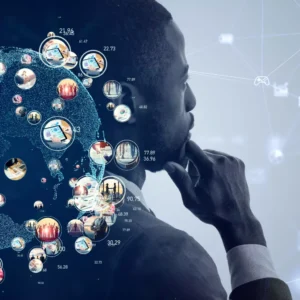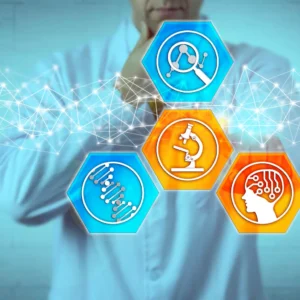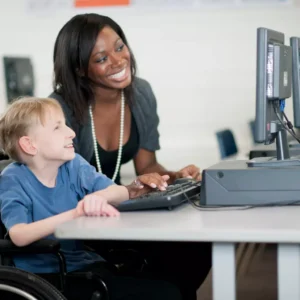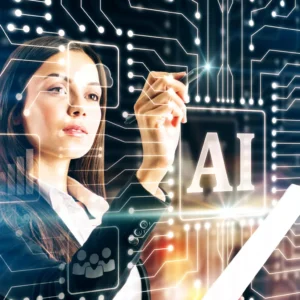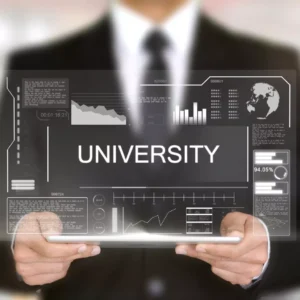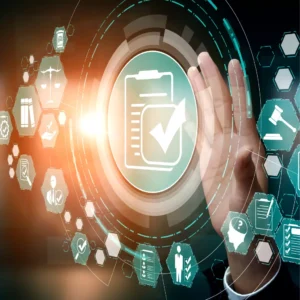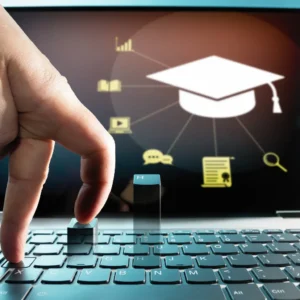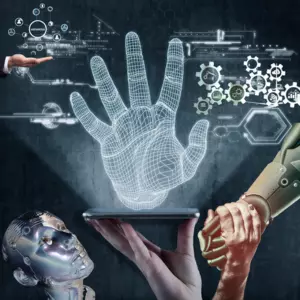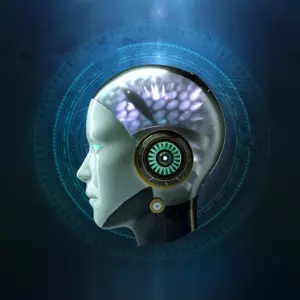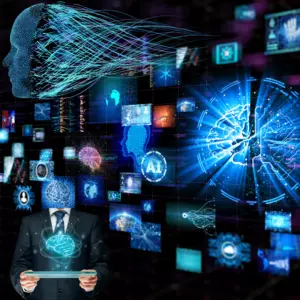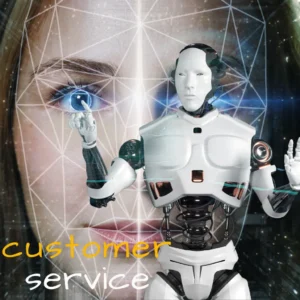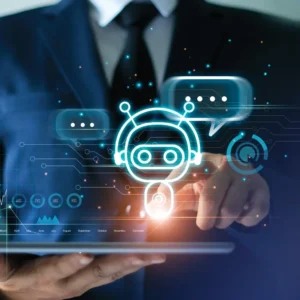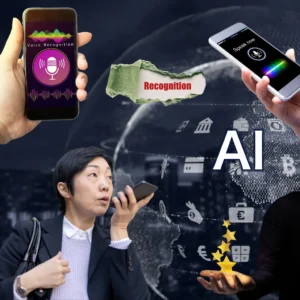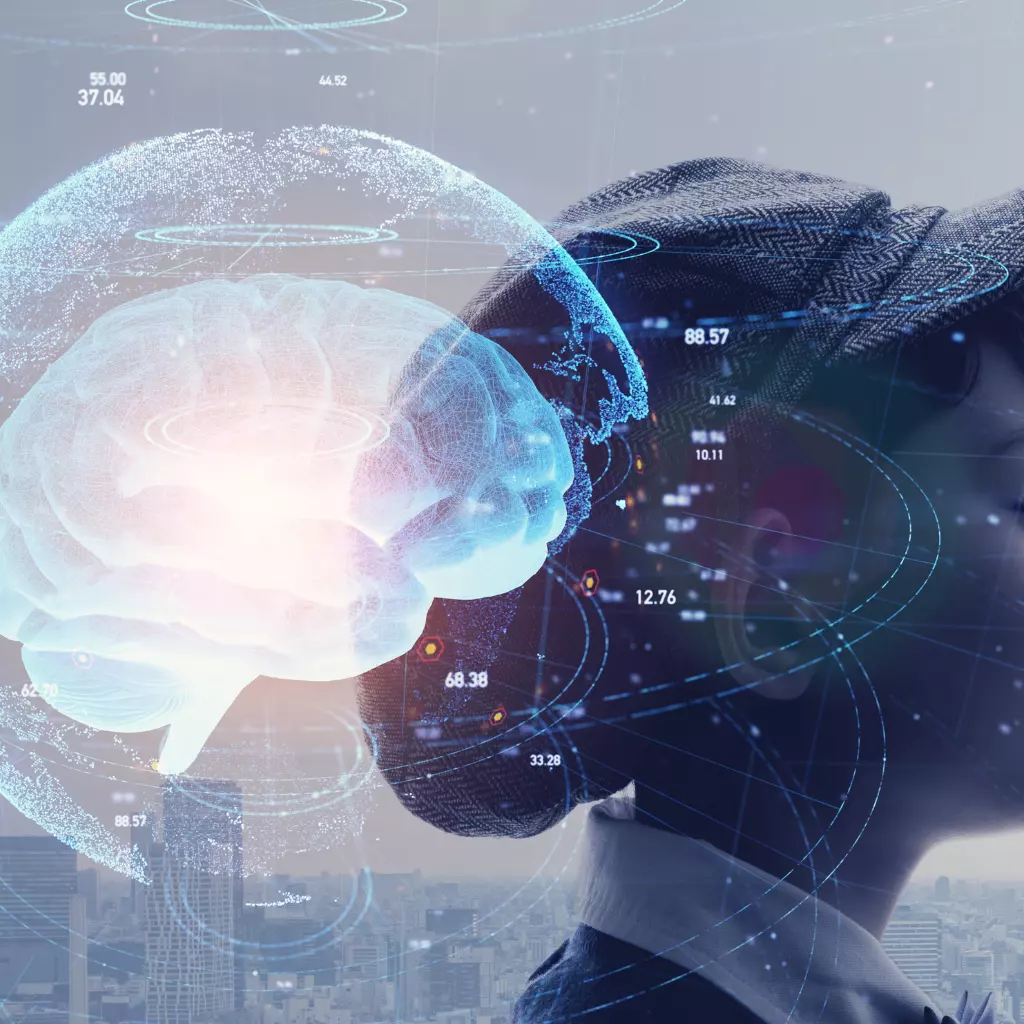
Classroom Companions
AI in tools for K-12 Education aka Young Learners
The modern classroom is undergoing a paradigm shift driven by the incredible advancements in Artificial Intelligence (AI) and Machine Learning (ML).
From early learners in primary education to K-12 students, AI is becoming an integral companion in their educational journey. This article explores how AI tools and technologies, such as learning apps, personalized curricula, and predictive analytics, make education more interactive and personalized.
We will delve into various sub-topics, from the role of robotics and gamification in learning to the importance of AI in tools for K-12 education and teacher training. Join us as we unpack the transformative impact of AI on today’s and tomorrow’s classrooms.
Table of Contents
Engaging Learning Apps for K-12
In today’s digital age, AI-driven learning apps are emerging as valuable companions in K-12 education. These platforms utilize machine learning algorithms to create engaging, interactive lessons that captivate young learners.
Traditional textbook methods often fall short of holding children’s attention, but AI-enhanced apps can offer personalized, gamified experiences. These apps adapt to each student’s learning pace, identifying areas where they excel or struggle and adjusting content accordingly.
The goal is to make learning not just effective but also enjoyable. By integrating multimedia elements—such as videos, quizzes, and interactive simulations—AI redefines how education is delivered and consumed.
Enhancing Support Education with AI
Artificial Intelligence (AI) is making significant strides in exceptional education support. By leveraging machine learning and data analytics, educators can create highly customized learning environments that address the specific challenges children with support needs face.
These AI-driven tools can monitor students’ engagement, track their progress, and detect early signs of learning disabilities. Speech recognition and natural language processing technologies also facilitate communication for children with speech and language impairments.
Overall, AI is a powerful enabler, ensuring that support education is accommodative, highly personalized, and effective.
Crafting a Curriculum for Every Child
Machine Learning (ML) is becoming a cornerstone in crafting personalized K-12 curricula that cater to the unique needs of each student. Unlike traditional education’s ‘one-size-fits-all’ approach, ML algorithms analyze individual learning styles, strengths, and weaknesses.
This enables educators to tailor educational material, ensuring that each child engages with content that is both challenging and achievable for them. A personalized curriculum makes education more equitable and effective, whether accelerating subject matter for gifted students or providing additional support in areas of difficulty.
This AI-driven individualization promises to be a game-changer in achieving academic excellence for all.
Harnessing Data for School Excellence
Predictive analytics is reshaping the landscape of educational management and student performance. Schools are now harnessing vast data—from attendance records to test scores—analyzed through AI algorithms to identify patterns and trends.
This insight allows educators and administrators to intervene proactively, whether it’s to help a struggling student or to improve teaching methodologies. Predictive analytics can forecast long-term outcomes such as college readiness or career prospects based on current performance metrics.
The ultimate aim is to create a data-driven culture within schools, leading to better decision-making and fostering an environment of academic excellence.
Introducing Robotics to Young Learners
The integration of robotics in K-12 education is no longer the stuff of science fiction. By providing a hands-on, interactive experience, robotics help make learning informative and engaging.
These devices, often programmed and operated through AI-driven software, allow K-12 students to understand complex STEM concepts experientially. Robotics challenges also encourage problem-solving, teamwork, and critical thinking skills. The world of robotics is exhilarating and filled with endless possibilities for educational growth and innovation.
The possibilities are endless, from simple coding kits that teach the fundamentals to advanced robots programmed for complex tasks. Get ready to embark on an exciting journey into the world of robotics!
Making Learning Fun with Games and AI
Gamification and AI in tools for K-12 Education are now more interactive and enjoyable. Imagine a world where learning is no longer dull and tedious but becomes a fun and dynamic experience.
Thanks to machine learning algorithms, educational games can now adapt to a child’s skill level, creating an engaging and exciting learning experience that keeps them returning for more. AI can track progress, identify areas for improvement, and even recommend subsequent activities while keeping students engaged through rewards, badges, and interactive storylines.
Such gamified experiences help grasp academic concepts and improve soft skills like problem-solving and collaboration. This fusion of gamification and AI tools promises to add a new dimension to educational engagement of K-12 Education.
Ensuring Student Safety with AI Monitoring
Child safety within educational settings is a critical concern, and AI is increasingly important in addressing it. Advanced monitoring systems with AI algorithms can detect unusual activity or potential safety threats in real-time.
For instance, AI-driven cameras can identify unauthorized individuals on school premises or flag concerning behaviour among students. Additionally, AI tools can monitor digital spaces to ensure a safe online learning environment, free from cyberbullying or inappropriate content.
By providing physical and digital security measures, AI technologies are instrumental in creating a safer, more secure learning atmosphere for K-12 students.
Up-skilling Teachers for the AI Age
As classrooms evolve with the integration of AI and machine learning technologies, there’s a growing need for continuous teacher training to keep pace with these changes.
Professional development programs are increasingly incorporating AI tools that help educators understand how to maximize the use of technology in curriculum delivery, student assessment, and classroom management. These AI-powered platforms can also offer personalized training modules for teachers, identifying their strengths and areas for growth.
By equipping educators with the knowledge and skills to effectively harness AI tools for K-12 students, schools are ensuring that technology serves as a complement to, not a replacement for, quality teaching.
Celebrating AI-driven Success in Primary Education
The impact of AI in primary education is increasingly evident through a range of success stories. Schools that have adopted AI-driven learning apps and personalized curricula report marked improvements in student engagement and academic performance.
Predictive analytics have also enabled early interventions, dramatically reducing dropout rates and improving outcomes. Support education students, too, are benefiting from highly customized learning experiences.
Moreover, teachers find that AI tools save time on administrative tasks, allowing them to focus more on in-class instruction. These successes demonstrate the transformative potential of AI, promising a brighter educational future for our youngest learners.
A Peek into the AI-Augmented Classroom
The classroom of the future is not just a space of chalkboards and textbooks but a dynamic environment enriched with AI innovations.
Imagine walking into a room where interactive whiteboards display content adapted to the day’s lesson and each student’s learning needs. Facial recognition systems gauge student engagement, adjusting lesson delivery in real time.
Robotics kits are available for hands-on STEM lessons, and AI-driven monitoring systems ensure a safe learning environment. Personalized learning apps are integrated seamlessly into the teaching process, while predictive analytics keep teachers, parents, and administrators in sync about student performance.
This is the AI-augmented classroom, an AI tool for K-12 Education—innovative, inclusive, and highly personalized.
Conclusion
As we usher in a new era of education, the promise of AI in shaping the future of learning is immense. AI has the potential to improve K-12 education through personalized curricula, exceptional support, predictive analytics, and gamification, making learning more engaging, effective, and equitable.
Robotics kits and AI-driven apps are making STEM learning more accessible, while continuous teacher training ensures that educators are well-prepared for this technological revolution. By celebrating successes and looking forward to future innovations, we can see that AI is not merely an addition to the educational landscape—it’s a transformative force redefining how we teach, learn, and grow.
Related Articles
- Beyond Books: AI in Shaping Modern Curricula
- AI in Educational RND: Pioneering Paths
- Tailored Teachings: AI in Support Need Education
- Smart Schools: AI in Educational Management
- Intelligent Intake: AI in College Admissions
- Never Stop Learning: AI’s Boost in Adult Education
- Digital Desks: AI’s Footprint in Modern Classrooms
- Virtual Varsity: AI in E-Learning Platforms
- Reimagining Rules: AI’s Influence on Education Policy
- Smart Choices: AI in Global Education Counselling
- AI in language learning apps: Chatbots to Culture
- AI-Driven Tutoring Platforms: 24/7 Tutors
- Play to Learn: AI Transforming Educational Games
- Scoring with Systems: AI in Exam Prep
- Tiny Tots, Big Tech: AI’s Role in Preschool Education
- AI-driven EdTech Solutions: Revolutionizing EdTech Investment and Engagement
- Learning Never Stops: AI’s Impact on Continuous Education
- Skill & Scale: AI in Vocational and Technical Training
- Campus to Computer: AI in Virtual Learning in Higher Education
- Digital Transformation in Education: 5 Areas Where Process Automation Takes the Lead
- Other Articles on AI Usage in Education
- Other Articles on AI usage in other industries

Arindam Roy
An Automation Consultant with 25+ years of IT Experience

